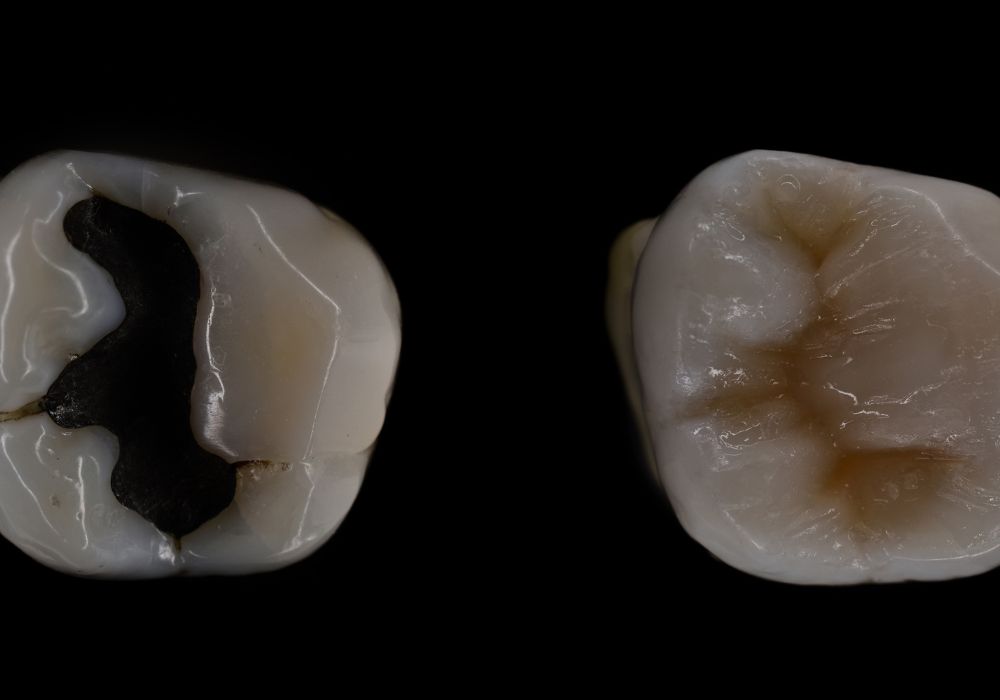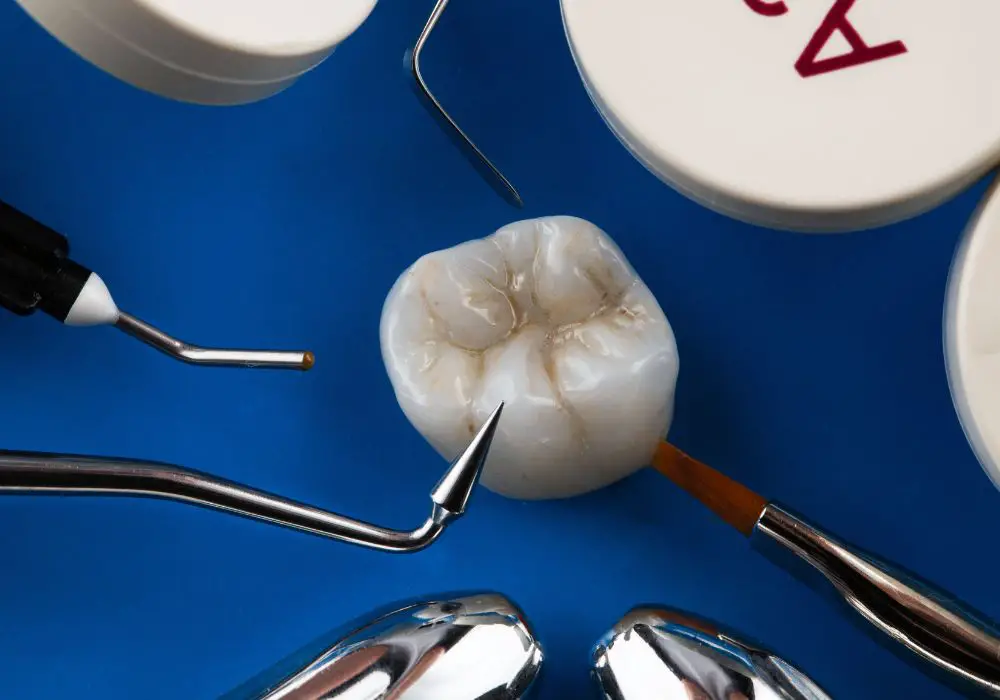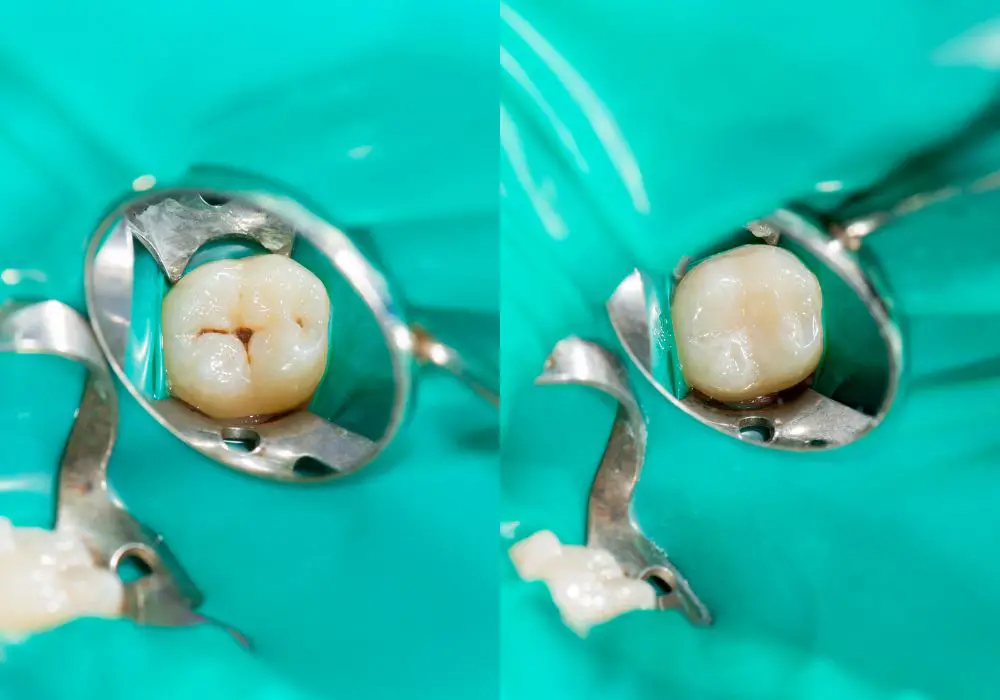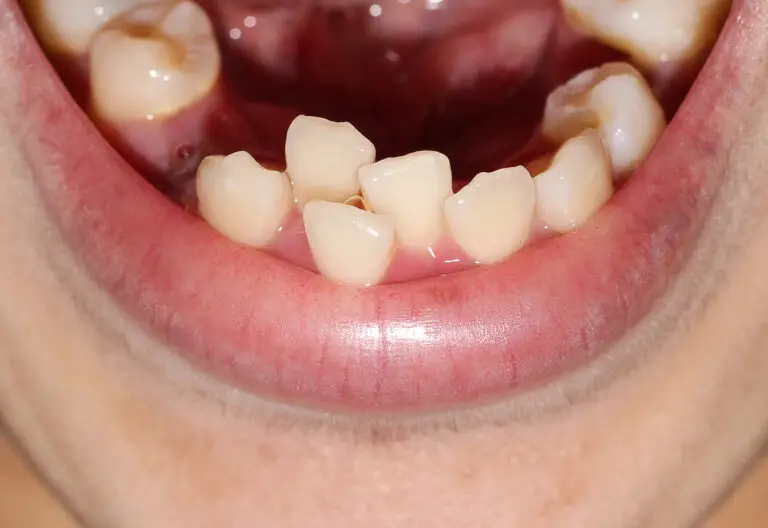If you are considering improving your smile, you may have heard about composite teeth. Composite teeth, also known as composite veneers or composite bonding, are a popular cosmetic dental procedure. But are composite teeth good?
Composite teeth are made of a tooth-colored resin material that is bonded to your natural teeth. They can be used to fix a variety of dental issues, such as chipped or broken teeth, gaps between teeth, and discoloration. The procedure is typically less expensive than other cosmetic dental options, such as porcelain veneers, and can be completed in just one visit to the dentist.
However, like any dental procedure, there are pros and cons to consider when deciding if composite teeth are right for you. While they are a more affordable option, they may not last as long as other procedures and may need to be replaced more frequently. Additionally, they may not be as durable as other materials and may be more prone to staining or chipping. It is important to discuss all of your options with your dentist to determine the best course of action for your individual needs.
Understanding Composite Teeth

If you’re missing teeth or have chipped or cracked teeth, composite teeth may be a good solution for you. Composite teeth are made of a tooth-colored resin material that is bonded to your natural teeth. They’re often used to fill in gaps or repair damage from chipped or cracked teeth.
Composite teeth work just like natural teeth. They can be used for chewing and biting, and they will last for many years with proper care. Unlike dentures or bridges, composite teeth are permanently bonded to your natural teeth, so you don’t have to worry about them falling out or coming loose.
Composite teeth are a popular choice for people who want to improve the appearance of their smile. They can be used to close gaps between teeth, fix discolored teeth, and repair minor crookedness, cracks, chips, and worn-down teeth. Composite teeth can also be used to replace missing teeth, although they may not be as strong as dental implants or bridges.
Composite teeth are a cost-effective alternative to more expensive dental treatments. They’re also less invasive than other treatments, such as dental implants or bridges, and they require less preparation of your natural teeth. However, composite teeth may not be suitable for everyone. Your dentist can help you determine if composite teeth are the right choice for you.
Benefits of Composite Teeth
Composite teeth, also known as composite resin teeth, are a popular choice for those looking to improve their smile. Here are some of the benefits of composite teeth:
Aesthetics
Composite teeth are made from a tooth-colored resin material that can be customized to match the color of your natural teeth. This makes them an excellent choice for those who want to improve the appearance of their smile without the use of metal or other visible materials. Composite teeth can be shaped to fit your mouth perfectly, giving you a natural-looking smile that you can be proud of.
Durability
Composite teeth are made from a strong and durable material that can withstand the daily wear and tear of normal use. With proper care, composite teeth can last for many years. Unlike other types of dental restorations, composite teeth are less likely to chip or break, making them a great long-term investment.
Comfort
Composite teeth are designed to fit comfortably in your mouth, making them a great choice for those who are looking for a comfortable and easy-to-wear dental restoration. Unlike other types of dental restorations, composite teeth don’t require any special care or maintenance, making them a convenient and hassle-free option.
Overall, composite teeth are a great choice for those looking to improve the appearance of their smile while also enjoying the benefits of a durable and comfortable dental restoration. If you’re interested in learning more about composite teeth, talk to your dentist today.
Drawbacks of Composite Teeth
While composite teeth offer many benefits, there are also some drawbacks to consider before deciding whether they are the right choice for you.
Cost
One of the main drawbacks of composite teeth is their cost. Compared to other dental treatments, composite teeth can be more expensive, especially if you need multiple teeth treated. However, it’s important to remember that the cost can vary depending on the complexity of the procedure and the dentist you choose.
Maintenance Requirements
Composite teeth require regular maintenance to keep them looking and functioning their best. They can stain over time, especially if you consume a lot of coffee, tea, or red wine. To prevent staining, you should avoid consuming these beverages or brush your teeth immediately after consuming them. You may also need to have your composite teeth polished periodically to maintain their appearance.
In addition, composite teeth can chip or break if you bite down on hard objects or use your teeth as tools. To avoid damaging your composite teeth, you should avoid chewing on ice, hard candy, or other hard objects. You should also avoid using your teeth to open packages or bottles.
Overall, composite teeth are a great option for improving the appearance and function of your teeth. However, it’s important to consider the cost and maintenance requirements before deciding whether they are the right choice for you.
Composite Teeth vs Other Materials

Composite teeth are a popular option for those looking to improve their smile. But how do they compare to other materials such as amalgam and porcelain? Let’s take a closer look.
Versus Amalgam
Amalgam fillings have been used for over a century and are known for their durability. However, they are also noticeable and can cause discoloration over time. Composite teeth, on the other hand, are made to match the color of your natural teeth and are virtually invisible. They are also less likely to cause sensitivity and are a good option for those with metal allergies.
When it comes to cost, composite teeth are generally more expensive than amalgam fillings. However, they are often covered by dental insurance, and the aesthetic benefits may be worth the extra cost.
Versus Porcelain
Porcelain teeth are a popular option for those looking for a more permanent solution to cosmetic dental issues. They are durable and resistant to staining, but also require more preparation and may not be suitable for all patients. Composite teeth, on the other hand, can be applied in a single visit and are a good option for those looking for a less invasive solution.
When it comes to cost, porcelain teeth are generally more expensive than composite teeth. However, they may be a better long-term investment for those looking for a permanent solution.
In summary, composite teeth are a good option for those looking for a less invasive and more affordable solution to cosmetic dental issues. While they may not be as durable as porcelain or amalgam, they offer a number of benefits including a natural appearance and low risk of sensitivity. Ultimately, the choice between composite teeth and other materials will depend on your individual needs and preferences.
Procedure for Getting Composite Teeth
If you are considering getting composite teeth, it is important to understand the procedure involved. Here are the steps involved in getting composite teeth:
Initial Consultation
The first step in getting composite teeth is to schedule an initial consultation with your dentist. During this consultation, your dentist will examine your teeth and discuss your goals for the procedure. They will also explain the pros and cons of composite teeth and answer any questions you may have.
Procedure Steps
- Preparation: Before the procedure, your dentist will clean your teeth and prepare them for the composite material. This may involve removing a small amount of tooth enamel to create a rough surface for the composite to bond to.
- Application of Composite Material: Your dentist will apply the composite material in layers, using a special light to harden each layer. They will shape the composite material to match the natural contours of your teeth.
- Polishing: Once the composite material has been applied, your dentist will polish your teeth to give them a natural-looking finish.
Aftercare
After getting composite teeth, it is important to take care of them to ensure they last as long as possible. Here are some tips for aftercare:
- Brush and floss regularly to keep your teeth clean and healthy.
- Avoid biting down on hard objects, such as pens or ice, as this can damage the composite material.
- Avoid consuming dark-colored foods and drinks, such as coffee and red wine, as these can stain the composite material.
- Visit your dentist regularly for check-ups and cleanings.
Overall, getting composite teeth is a relatively simple and painless procedure that can help improve the appearance of your smile. By following these aftercare tips, you can ensure your composite teeth last as long as possible.
Who Should Consider Composite Teeth

If you are looking for a way to improve your smile, composite teeth may be a good option for you. Here are some situations where composite teeth may be a good choice:
1. You have chipped or cracked teeth
Composite teeth are a great option for repairing chipped or cracked teeth. The composite material is applied to the affected tooth and then shaped and polished to match the surrounding teeth. This can help to restore the appearance of your smile and protect your teeth from further damage.
2. You have gaps between your teeth
If you have gaps between your teeth, composite teeth can be used to fill in the spaces and create a more even appearance. This is a less invasive and more affordable option than traditional veneers or braces.
3. You have discolored teeth
If you have teeth that are discolored or stained, composite teeth can be used to improve their appearance. The composite material can be color-matched to your natural teeth, giving you a brighter, more even smile.
4. You want a less invasive option
Composite teeth are a less invasive option than other cosmetic dentistry procedures, such as veneers or crowns. The procedure can usually be completed in just one visit to the dentist, and there is no need for anesthesia or drilling.
Overall, composite teeth can be a good option for anyone looking to improve the appearance of their smile. However, it is important to talk to your dentist to determine if this procedure is right for you.
Frequently Asked Questions
What are the disadvantages of composite bonding?
Composite bonding is a popular cosmetic dental procedure that has some disadvantages. Composite bonding can be prone to staining, and it may not last as long as other types of dental restorations. Composite bonding can also be more susceptible to chipping or breaking than other types of dental restorations.
Is it worth getting composite bonding?
Composite bonding can be a good option for people who want to improve the appearance of their teeth. It is a cost-effective way to fix minor dental issues like chipped or discolored teeth. However, it is important to remember that composite bonding may not be as durable as other types of dental restorations.
How long does composite last on front teeth?
The lifespan of composite bonding on front teeth can vary depending on a few factors, such as the quality of the bonding material, the skill of the dentist, and the patient’s oral hygiene habits. Generally, composite bonding can last anywhere from 5 to 10 years with proper care.
What is the cost of composite veneers compared to porcelain veneers?
Composite veneers are generally less expensive than porcelain veneers. The cost of composite veneers can range from $250 to $1,500 per tooth, while porcelain veneers can cost between $925 to $2,500 per tooth.
How long do composite veneers last?
Composite veneers can last anywhere from 5 to 7 years with proper care. However, they may need to be replaced sooner if they become chipped or worn.
Where can I find composite veneers near me?
You can find composite veneers near you by searching for a cosmetic dentist in your area. Many dental practices offer composite veneers as a cosmetic dental procedure.






